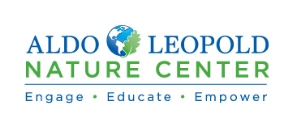DAY ONE (Thurs, Nov 7) will take place at ALNC in Monona and feature discussions of Aldo Leopold and Nina Leopold Bradley's phenological data comparisons illustrating climate change. Participants will engage in interactive investigations using field data to illustrate impacts on regional precipitation and local ecosystems. Hands-on activities include measuring stormwater runoff water quality and viewing examples of adaptation and mitigation strategies. Connect the local to the global with resources you can access with your students in classroom or outdoor settings.
DAY TWO (Fri, Nov 8) will take place at CIMSS, on the UW-Madison campus, the birthplace of satellite meteorology. Along with an overview on the status of our global climate, educators will learn about numerous digital resources and activities for teaching climate concepts to students in grades 6-14, including NOAA's Climate Explorer. We will look at climate datasets acquired by satellites and learn about our nations’ newest geostationary (GOES) weather satellites. Participants will leave fully equipped to coach student teams in a spring 2020 virtual science fair (
http://cimss.ssec.wisc.edu/education/goesr/vsf) using satellite data to investigate weather and natural hazards.
Educators attending both days will receive certificates of completion to apply towards CEU credits.
Reimbursement of up to $300 per participant available to help offset travel, hotel, substitute fees or other workshop expenses. Please complete this form if requesting reimbursement. Continental breakfast, light refreshments and lunch are included each day. Lodging is not provided.


.png)